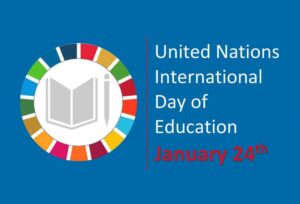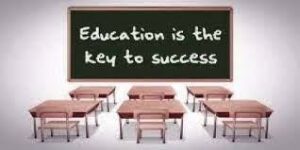 Education is often hailed as the key that opens many doors or the universal tool for progress and development.
Education is often hailed as the key that opens many doors or the universal tool for progress and development.
Although its value in making the difference in the lives of humans is known and often spoken about, there remains a divide between the access to opportunities for learning for males versus those for females to this present day.
As we observe the sixth International Day of Education, under the theme “Learning for Lasting Peace,” we need to spare a thought for all those girls and women affected by conflicts across the world. Many of our sisters are already and will be directly and indirectly affected socially, economically and psychologically by the fallout from these battles. This would be manifested in their inability to attend schools to gain an education, lacking opportunities among other things.
These wars also threaten to erode the gains made to achieve gender equality. This is echoed by the World Bank which notes girls in low-income countries and contexts affected by fragility, conflict, and violence (FCV) are more 2.5 times more likely to be out of primary school and 90 percent more like to miss post-secondary education.
Additionally, the United Nations Scientific and Education Council (UNESCO) acknowledges education in all its forms and dimensions, in and out of schools, shapes how we see the world and treat others, and it can, and should, be a pathway to constructing lasting peace. This is a cause for concern as those girls who will be affected by the conflicts are at risk of not being able to hone their critical thinking skills through classes as well as general knowledge on a range of topics. Therefore, they could be more susceptible to buying into false narratives about the correctness of some ideologies.
We, as Soroptimists, have been joining in the fight against education inequality – having professed it as one of our objectives. Overtime, clubs within our SIGBI network have executed numerous projects to help advance the cause and ultimately empower women and girls. Those that readily come to mind include book donations and scholarship drives. Even at the level of the Federation our Diamond Education Grant, has been a trail blazer since 1972. It has provided grants to assist women to update their skills after employment breaks or to acquire new skills to improve their opportunities for employment and promotion. Awards are made to help towards the cost of course fees or books and
equipment.
 Given our track record, we must continue the to ensure females get a chance to access education regardless of age, colour class or creed. This must continue to be our fight as in the words of Brigham Young, “when you educate a woman; you educate a generation.”
Given our track record, we must continue the to ensure females get a chance to access education regardless of age, colour class or creed. This must continue to be our fight as in the words of Brigham Young, “when you educate a woman; you educate a generation.”
Blog by Reanne Phillips, SI Jamestown


